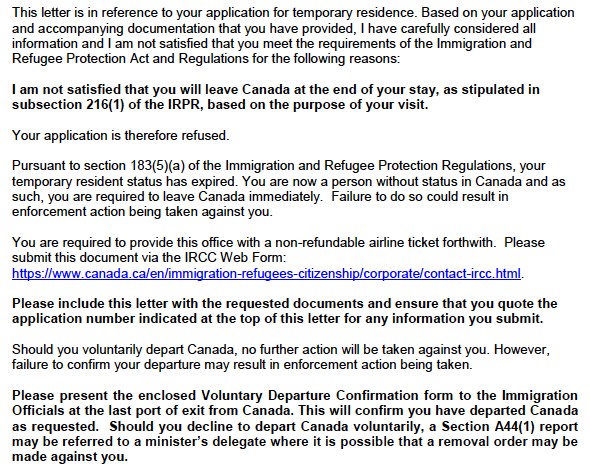
Dear IRCC: Requesting Uploaded Non-Refundable Plane Tickets for Refused Extension Applications Is Not The Way To Go
I apologize folks. I’m in the middle of a transition (starting my own Firm in February – more details about this later). I’ve also engaged

